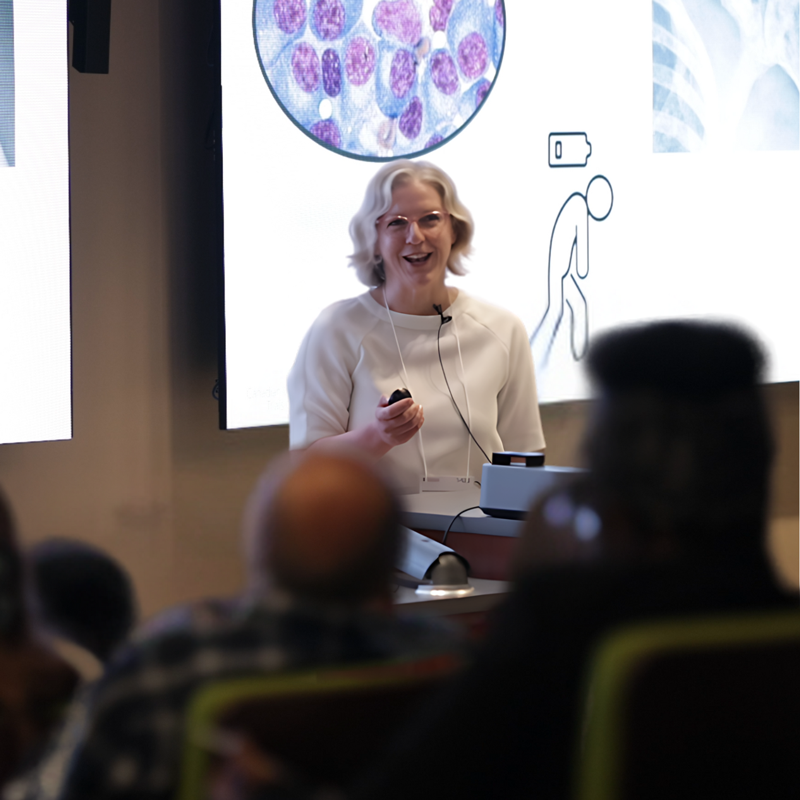Fitness
Cancer research transformed by landmark gift to Queen’s University

Cancer research at Queen’s University is being transformed by a groundbreaking gift from Cara and Murray Sinclair.
The Sinclairs’ support will build cancer research capacity, establish cutting-edge facilities, and launch new training opportunities to combat cancer locally, nationally, and globally. In recognition of the family’s $25 million investment, the Queen’s Cancer Research Institute will be renamed the Cara & Murray Sinclair Cancer Research Institute (SCRI).
“This gift has the potential to dramatically improve outcomes for patients with cancer,” said Dr. Andrew Craig, Director of SCRI. Funds will advance training and research to advance new therapies and address critical gaps in care. Overall, the gift will allow SCRI to take “a giant leap forward in our mission,” he added.
The investment includes support for two innovations that could lead to transformational new cancer treatments:
- A world-class imaging facility will allow researchers to understand the ways in which cancer cells manage to get past our immune system and resist treatments, and uncover new therapies for different cancer types; and
- A specialized biomanufacturing facility with the ultimate goal of developing and manufacturing cell-based therapies – one of a handful of its kind in Canada and the first to have direct connection to comprehensive cancer trials expertise.
“Queen’s takes a unique, collaborative approach to cancer research. It integrates multiple disciplines to solve problems in new ways, with a constant focus on better outcomes for patients,” the Sinclairs said. “Our family is proud to support the institute, and we hope that this gift inspires even more support for cancer research at Queen’s.” Murray Sinclair is a 1984 alumnus of Smith Commerce.
“We are grateful to the Sinclairs for their exceptional generosity, driven by their desire to change the future of cancer care through research and education,” said Jane Philpott, Dean of Queen’s Health Sciences. “This gift aligns with our faculty’s key priorities: to drive world-renowned, collaborative research; to prepare the next generation of health scientists; and to improve health care in Canada and beyond.”
The Cara & Murray Sinclair Cancer Research Institute is the only research centre in Canada that brings together experts from three key cancer disciplines: (1) cancer biology and genetics; (2) clinical trials (Canadian Cancer Trials Group); and (3) cancer care and epidemiology. These experts work on cross-disciplinary teams that share knowledge, advance treatments available to patients, and evaluate the impact on patients. The international reach of the clinical trials division puts SCRI on the world stage for leading cancer research and drug development.
Cutting-edge research
The gift will also support the creation of an SCRI innovation fund – a new funding competition to support collaboration and innovative team-based research. Meanwhile, the new imaging and biomanufacturing facilities will combine to enhance SCRI’s ability to take cancer research from fundamental discovery to the development of drugs and therapies.
“We’ll be able to watch immune cells in different kinds of cancers and see what they are doing,” said Dr. Paul Kubes, Queen’s Canada Excellence Research Chair in Immunophysiology and Immunotherapy. “We think that the future of immunotherapy is that it could lead to a cure for patients with some cancers.”
The biomanufacturing facility aims to make personalized cellular immunotherapy treatments – among the most promising new approaches to cancer treatment – available to Canadian patients faster for clinical trials.
“Cell therapies are living drugs,” said Dr. Annette Hay, Senior Investigator at the Canadian Cancer Trials Group. “They are manufactured from a patient’s own immune blood cells engineered to make those recognize the cancer and destroy it. It’s a brand-new way of treating cancer.”
Patient impact
For patients, the biomanufacturing facility will expand opportunities to participate in clinical trial research, in addition to enabling the possibility of having their cell therapies manufactured locally, Hay explained.

That opportunity would make a huge difference for Dr. Hay’s patients like Cathy Tidman, who had to relocate 728 kilometres from Seeley’s Bay to Cleveland for CAR-T cell therapy to treat her lymphoma.
“Being able to access treatment and recover in a familiar place would make a huge difference,” said Tidman, noting the financial, physical, and emotional costs of travelling for cancer care. “For it to be localized, to enable people to stay in their home – to stay with their families. It means a lot.”
The gift will also support SCRI’s Division of Cancer Care and Epidemiology (CCE), whose researchers look at the value of new treatments by assessing their effectiveness and impact on patients.
“Our work explores the human impact of issues around access to care, quality of care and equity,” said Dr. Chris Booth, Director of CCE. “We’re very interested in how patients perceive their experience with the cancer system. What’s working, what’s not working and how do they perceive the potential benefits, side effects and risks of therapy? Then we look at how we can better balance these things as we design treatments and health systems for tomorrow.”
Supporting students
The Sinclairs’ investment will foster a new cancer training program that enables students and early-career researchers to gain hands-on experience and mentorship in a multidisciplinary research environment. Through exposure to senior cancer researchers across the range of SCRI’s disciplines, the institute plans to graduate highly skilled young scientists who will be the cancer research leaders of tomorrow.
Transforming SCRI
“Queen’s is grateful to the Sinclair family for their incredible generosity and support for cancer research,” said Patrick Deane, Principal and Vice-Chancellor of Queen’s. “Their gift will enhance the Cara & Murray Sinclair Cancer Research Institute’s ability to discover new potential treatments, test new drugs, and evaluate the impact that these treatments have on patients. It will also help Queen’s develop highly skilled trainees who will be the next leaders in cancer research.”


)






